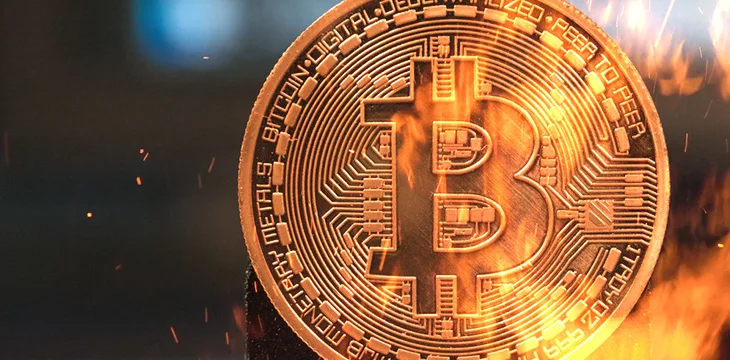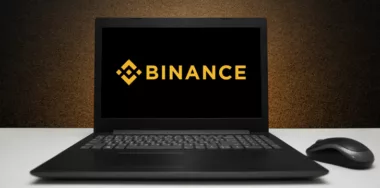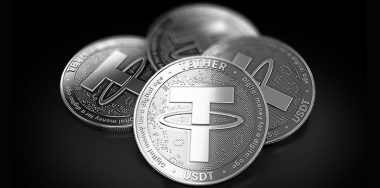| Getting your Trinity Audio player ready... |
BTC’s recent fiat price pump has less to do with its perceived institutional adoption than with the likes of Binance and Tether flooding the market with unbacked stablecoins to grease their wash trading.
BTC’s fiat value sank below US$25,000 on June 15 in the wake of the U.S. Securities and Exchange Commission (SEC) filing civil charges against Binance and U.S. rival Coinbase (NASDAQ: COIN) in quick succession. Less than a week later, BTC topped $30,000—a height not seen since early April—despite ever-louder rumblings that the U.S. Department of Justice (DOJ) is preparing criminal charges against the world’s largest exchange (Binance) and its founder Changpeng ‘CZ’ Zhao.
BTC maximalists point to recent news of a number of traditional finance giants such as BlackRock (NASDAQ: BLK) and Fidelity Investments applying for BTC-focused exchange-traded fund (ETF) licenses in the U.S., or Deutsche Bank (NASDAQ: DB) seeking digital asset custody license in Germany. To the BTC maxis, this is a sign that institutional investors are clamoring to dive into this pool, and thus BTC’s long-running ‘destination moon’ target is finally within reach.
Sorry, but no. Forget landing on the moon; BTC is more like Capricorn One, an intricately faked Mars landing where you find yourself trapped on a studio set with O.J. Simpson. (RUN!!!) “A fantastic $30 billion hoax” was how the movie was sold, and ‘crypto’ easily outpaces that sum, what with inflation and all. But as the film’s trailer teased: “Dig deep enough, you might uncover the truth.”
With retail traders still showing zero signs of tossing more of their perfectly good fiat cash onto the raging crypto bonfire, the arsonists behind this dumpster fire are doing what they always do: pretend that somebody somewhere is sending perfectly good fiat cash to the issuers of stablecoins, then sending these stablecoins to exchanges like Binance and Huobi and wash-trading the hell out of them with tokens like BTC. Somehow, people keep falling for it.
You never forget your first pump
This is the fiction that has underpinned the BTC market ever since the first truly serious bull run began in 2017 before crashing hard the following year. Over the same period, Tether’s market cap grew from $10 million to $2.8 billion, much of which was traded on Bitfinex, the exchange owned by Tether’s parent company, iFinex.
Bitfinex and Tether played key roles in artificially inflating BTC’s price during the 2017 boom, during which BTC’s price leaped from $1,000 to nearly $20,000. A widely read report by University of Texas finance professor John Griffin later concluded that Tether was used to prop up BTC on Bitfinex whenever it showed signs of flagging during this so-called ‘boom.’
Bitfinex had the ability to effectively conjure Tether out of thin air, then used these tokens to place massive buy orders for BTC on the exchange, creating the illusion of consumer demand. Unanswered questions regarding the dubious status of the reserves allegedly backing Tether 1:1 with the U.S. dollar suggested to Griffin a scenario of “unbacked digital money inflating cryptocurrency prices.”
The Tether/Bitfinex response to Griffin’s report set the pattern for years to come. They claimed Griffin’s claims were misleading, that his data set was incomplete, and that he hadn’t conclusively proved Tether was insufficiently backed. But they never provided any specific information that might have proven Griffin wrong.
They also never submitted Tether’s reserves to a professional third-party auditing firm. Half a decade later, they still haven’t done that audit, despite constant assurances that it was only “months” away.
Tether’s market cap has risen by one-quarter since the start of 2023 to a staggering $83.1 billion. How? Who on earth is sending billions of actual U.S. dollars to Tether when they could just as easily send those dollars directly to an exchange? Who would send cash to Tether, which has been caught engaging in U.S. bank fraud and facilitating terrorist financing, if they themselves weren’t engaged in criminality?
The recent release of Tether’s reserve statements from its 2021 dust-up with the New York Attorney General’s office showed the company’s prior reliance on commercial paper (CP) of dubious origin. Among the more interesting CP issuers on Tether’s balance sheet was AKCB Falcon Limited, a subsidiary of the Qatar-based Masraf Al Rayan (MAR) bank.
MAR has been the subject of lawsuits in the U.S. based on the bank’s alleged facilitation of funding of terror groups Hamas and Islamic Jihad. This January, the U.K.’s Financial Conduct Authority imposed a £4 million ($5.1 million) penalty on a Birmingham-based MAR subsidiary for failing to have “appropriate internal controls in order to prevent activities related to money laundering and terrorist financing.”
The closest Binance gets to true anything
Binance is one of the largest recipients of Tether, and the exchange received another $750 million worth of USDT stablecoins last week. CZ was so happy to have so many new Crypto FunBucks that he seems to have gotten a little overenthusiastic when feeding them into the 300-odd ‘house accounts’ he personally controls on his exchanges and firing up the laundromat.
This led to a somewhat embarrassing moment on Binance.US, which briefly showed a BTC price of $138,070 in USDT. While the uncertainty around the future of Binance.US in the wake of the SEC’s civil charges has lowered liquidity on the exchange, we sorta suspect that some Binance worker bee just fell asleep at the controls and neglected to switch on the other side of the trading bot army.
Meanwhile, Binance recently added another $1 billion worth of TrueUSD’s TUSD, the stablecoin with ties to Justin Sun, founder of TRON and owner/not-owner of the Huobi exchange. Binance wallets now hold 90% of all TUSD out there in the wild.
That minting boosted TUSD’s market cap to over $3.1 billion, up from just $750 million or so when the year began. It helps that CZ has given TUSD the zero-fee trading privileges that Binance used to reserve for BUSD, the stablecoin on which Binance had partnered with Paxos Trust until New York regulators ordered a halt to further BUSD issuance this February.
Coincidentally (or not), Binance’s $1 billion TUSD buy occurred shortly after TrueUSD ‘paused’ minting and redemptions of TUSD via Prime Trust, the struggling Nevada-based custodian/processor that is currently the subject of an acquisition by rival BitGo Holdings.
In a further coincidence (or not), The Network Firm, a Florida-based outfit that performs automated ‘attestations’ of TUSD’s reserves, recently paused its due diligence of the stablecoin. The ‘ripcord’ notification that was activated refers to issues including “the sum total of [TUSD] liabilities being greater than the sum total of the relevant assets.”
Said ‘ripcord’ has since been disabled, and Singapore-based Techteryx Ltd—the shadowy firm that acquired TrueUSD in December 2020 and took control of the private keys to TUSD’s wallets earlier this year—happily assured everyone that there are more TUSD assets than liabilities.
However, a caveat was added to this report by The Network Firm (which consists of accounting firm Armanino’s former crypto crew that provided attestations for fiduciary stalwarts, including Binance and FTX.US). This caveat noted that a Techteryx agent had opened an account with “a Swiss depository institution” on April 21 and started using this account on June 13—two days before that billion-plus in new TUSD was minted.
Alarmingly, the terms of this Swiss account “do not explicitly specify that the related funds are escrowed on behalf of TUSD token holders or that Techteryx and the agents are not entitled to any funds at any time and no amounts deposited into the accounts shall become the property of Techteryx, the agents, or any other entity, or be subject to any debts, liens or encumbrances of any kind of Techteryx, the agents, or any other entity.”
The Network Firm stated that Techteryx has “initiated deliberations” with the Swiss institution to “modify the account’s Terms to explicitly adhere” to Techteryx’s promises not to dip into TUSD’s reserves in the event of a crisis, like Justin seeing a pricey painting he fancies. And given the absolutely ironclad nature of an initiation of deliberations, well, we’re sure they’ll plug that loophole real soon.
At any rate, we’re totally convinced that Binance’s billion dollars in U.S. cash arrived safe and sound and that TUSD is as solid as, you know, Tether. In the meantime, with Binance’s zero-fee trading on TUSD, CZ can wash-trade to his heart’s content in a fee-free (and so far consequence-free) universe!
Look for the silver lining
Crypto wash trading is endemic, with everyone from Coinbase and Gemini to exchanges in Canada, South Korea, and Thailand, not to mention Justin Sun himself and, of course, the defunct FTX having been caught doing it at some point.
Why? Because exchanges are casinos and tokens are their chips. There’s simply no practical purpose behind the overwhelming majority of tokens out there, leaving reckless speculation the only thing they’re good for. And the only way to lure the retail suckers into your casino is to make it look like they’re missing out on a sure thing.
On the plus side, it’s comforting to remember that market manipulators like Binance and Tether have traditionally attempted to front-run bad news they know is just around the corner. The current artificial inflation of BTC’s fiat value could be a sign that the DOJ’s long-awaited criminal charges against both Binance and Tether are closer than we think. Time to wash up, boys.
Follow CoinGeek’s Crypto Crime Cartel series, which delves into the stream of groups—from BitMEX to Binance, Bitcoin.com, Blockstream, ShapeShift, Coinbase, Ripple,
Ethereum, FTX and Tether—who have co-opted the digital asset revolution and turned the industry into a minefield for naïve (and even experienced) players in the market.
New to blockchain? Check out CoinGeek’s Blockchain for Beginners section, the ultimate resource guide to learn more about blockchain technology.








